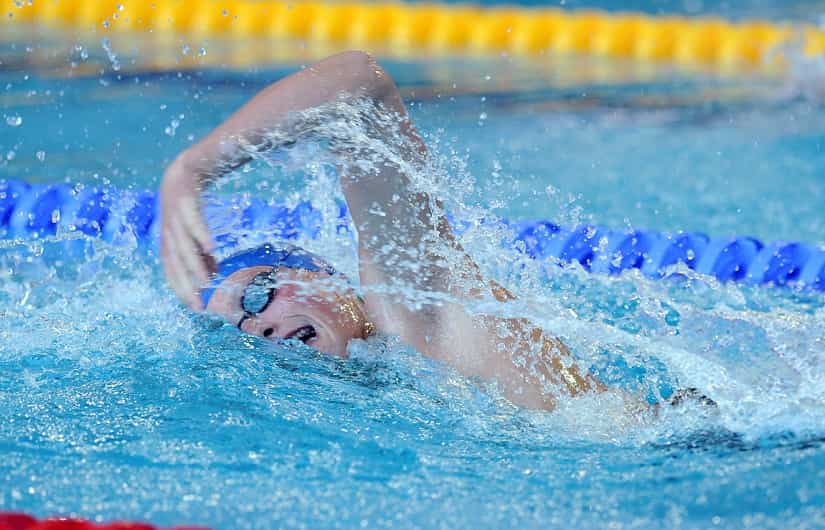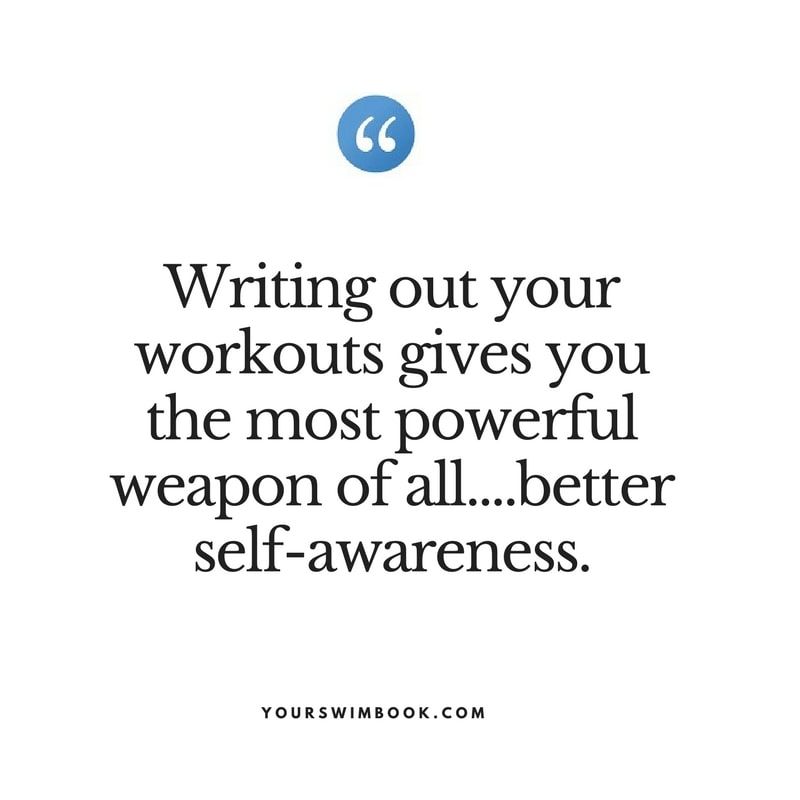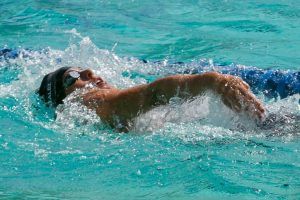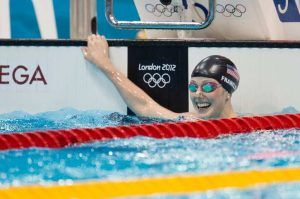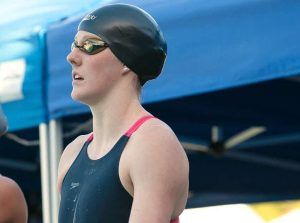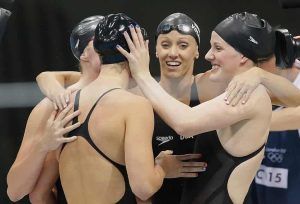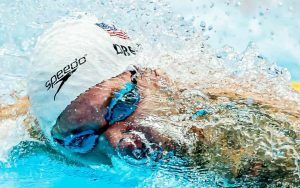Recently I got an email from a young swimmer asking whether he should start writing out his workouts. Here’s an expanded version of my answer.
Pop quiz time! Which of the following do you agree with?
- I always set awesome goals, and accomplish them every time.
- I never get bent out of shape for long periods of time after I have a stinky swim practice or a bad race.
- Every time I step on deck I know what I’m there to accomplish.
If you found yourself feeling iffy about agreeing with any of these, it’s okay. No judgement here.
And the reason you weren’t belting out a full-hearted, deeply baritone’d “Heck yeah!”‘ isn’t because you aren’t deserving, or aren’t good enough, or anything like that.
It’s because your self-awareness could use some TLC.
In fact, I’d argue that the biggest advantage fast swimmers have over their competition is a greater sense of self-awareness.
Why does self-awareness matter?
- Because it is the thing that helps you create ambitious goals that are doable. (Instead of setting wildly unrealistic goals that leave you feeling perpetually not good enough.)
- Because it helps you to better diagnose and evaluate the weaknesses and shortcomings in your training and lifestyle. (So that you can fix what needs fixin’ much faster.)
- Because it helps give you perspective when the inevitable doo-doo hits the fan with your swimming. (Instead of treating every setback as a game-ender, leaving you feeling like an emotional yo-yo anytime things don’t go your way.)
Self-awareness is a critical skill to have. It’s certified gangster, some might say.
And while some swimmers seem to be more aware than others naturally, there is one thing that you can do to better understand self.
While there is a bunch of other reasons writing out your workouts will help you become a better, smarter swimmer, from managing your training goals to improving motivation levels, here’s how tracking your workouts will help you to better understand self.
A log book helps you to see your workouts for what they are, and not for what they might feel like.
They way we feel in the water isn’t always a good barometer for our performance. After all, we’ve all had those swim practices where we got in the pool feeling like garbage and somehow belted out a world-class session.
When we focus exclusively on how we feel–“I felt really motivated, so good workout!”–we (mistakenly) make it a precondition for putting in a good effort in the pool.
Writing out your workouts will help you see that how you do in practice doesn’t have to be connected to how you feel (a.k.a. how motivated you are).
See also: The Best Swimming Apps for Smarter Swim Workouts
It helps you to clarify what you are doing.
One of the most powerful things when we work diligently on our mental training is that we attain a sense of clarity with our swimming.
The perks of this is hard to overstate; clarity gives us calm, gives us purpose, and keeps us focused on the things that drive improvement.
Tracking your workouts helps you to stay de-cluttered when it comes to your swimming so that you can stay clear about what you are working on improving.
It’s the battle plan for your goals.
The swim season is long. It’s trying.
And you know what makes it worse?
Not having the daily and short-term goals to go with it. Your training journal, more than just a record of your practices, is also where you go to strategize and plan for what you want to accomplish in training.
- Is this going to be the week that you do one extra dolphin kick off every turn?
- Is today going to be the day that you add some core exercises to your training regimen?
Sit down with your training journal, and write out the things you want to achieve today and this week.
It will remind you to be confident.
Self-confidence in yourself and in the process is crucial to success in the pool.
Having a world-class coach, epic facilities, a complete nutrition plan, a comprehensive recovery routine and all the mindset tips in the world is great, but if you don’t have the belief to go with it things will collapse quickly.
Tracking your progress gives you a deeper understanding of the process, and as you better come to grips with what it takes to be successful, and what things best position you to be successful, you will experience a sense of belief that you can accomplish the goals you have.
Again, a training journal is more than just your workout history–it’s a record of all the times you conquered doubt and adversity.
It’s the first place to go when you need to remind yourself that you are tougher than you think.
It helps you weather the setbacks.
You can tell a lot about a swimmer in watching how they deal with a bad swim. Whether it derails the whole meet, or after some reflection, launches them into faster swimming, how we react to the fails in life ultimately predict how far we take our swimming.
Plateaus will happen. Injuries will happen. Dips in motivation will happen. Setbacks of every color and stripe will come your way given enough time.
Having a game plan for these inevitable detours is key, but the understanding of whether this is truly a setback or not is also important.
If you are tracking your progress in a training journal you will know how serious (or not serious) the setback is, better helping you deal with them when they occur.
The Takeaway
When you put all of this together you have an impressive set of tools at your disposal: you have a mechanism for greater self-awareness, you will be able to keep a cooler head after the eventual poor workout and race, you’ll learn to appreciate the process, and along the way you will develop some serious self-belief.
Together you will have a powerful ally in your journey towards achieving your goals in the water—and all this from a pen and a notebook.
More Stuff Like This:
How Katie Ledecky Took Her Training to the Next Level. One of the most aggressive and fearless swimmers in the world today used this old-school training tool to help power her to her first Olympics. (Spoiler alert: It’s a log book!)
7 Things You Can Do Today for a Better Practice Tomorrow. Want to get ahead of tomorrow’s workout? Here are 7 simple things that you can do today to make sure tomorrow’s practice goes down like a cool glass of success.

